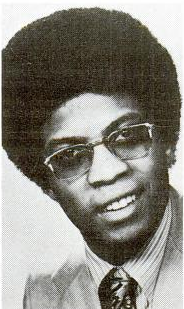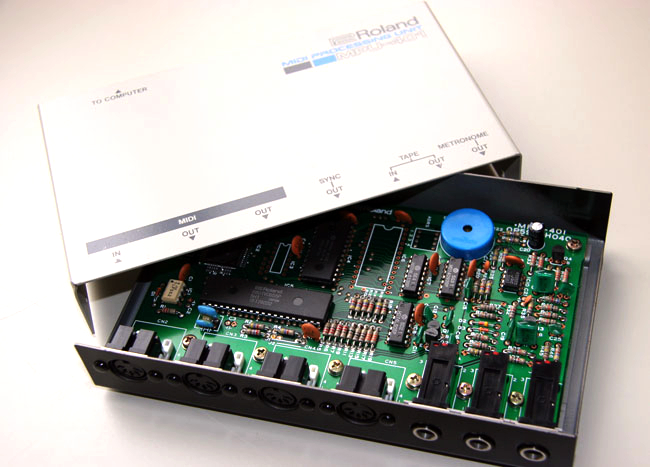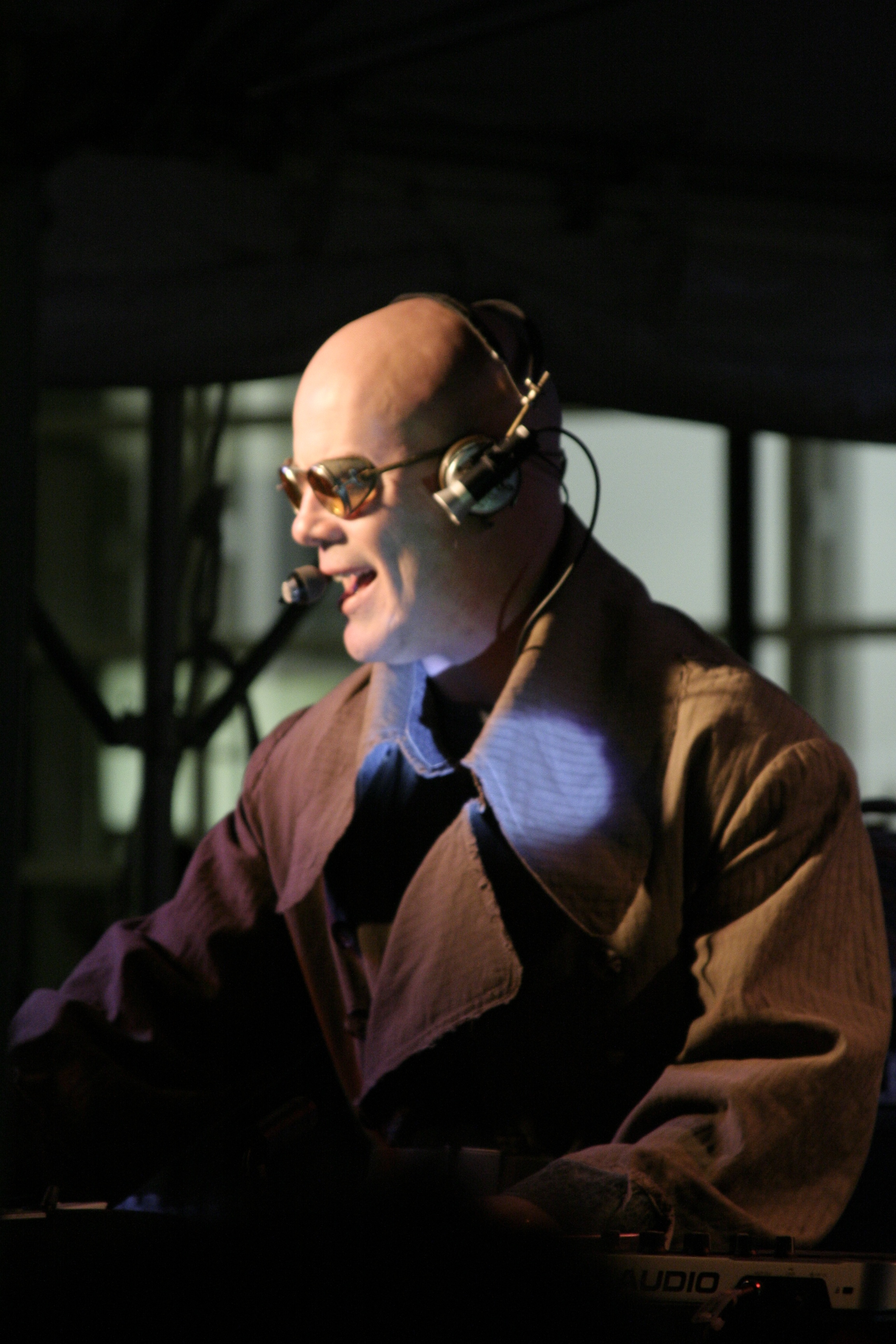|
Opcode Systems
Opcode Systems, Inc. was founded in 1985 by Dave Oppenheim and based in and around Palo Alto, California, USA. Opcode produced MIDI sequencing software for the classic Mac OS and Microsoft Windows, which would later include digital audio capabilities, as well as audio and MIDI hardware interfaces. Opcode's MIDIMAC sequencer, launched in 1986, was one of the first commercially available MIDI sequencers for the Macintosh. History In 1985, Stanford University graduate Dave Oppenheim founded Opcode. Dave was the majority partner, focusing on Research & Development, with Gary Briber the minority partner focusing on Sales & Marketing. Paul J. de Benedictis joined the company to write product manuals, test products and demo the products after meeting Ray Spears in San Francisco while he was printing the beta manual for MIDIMAC Sequencer v1.0. The products were announced at the New Orleans Summer NAMM (June 22–25) (after which Apple objected to the name) and, according to composer ... [...More Info...] [...Related Items...] OR: [Wikipedia] [Google] [Baidu] |
Gibson Guitar Corporation
Gibson, Inc. (formerly Gibson Guitar Corporation and Gibson Brands Inc.) is an American manufacturer of Guitar manufacturing, guitars, other musical instruments, and professional audio equipment from Kalamazoo, Michigan, and now based in Nashville, Tennessee. Orville Gibson started making instruments in 1894 and founded the company in 1902 as the Gibson Mandolin-Guitar Mfg. Co. Ltd. in Kalamazoo, Michigan, to make mandolin-family instruments. Gibson invented archtop guitars by constructing the same type of carved, arched tops used on violins. By the 1930s, the company was also making flattop acoustic guitars, as well as one of the first commercially available semi-acoustic guitar, hollow-body electric guitars, used and popularized by Charlie Christian. In 1944, Gibson was bought by Chicago Musical Instruments (CMI), which was acquired in 1969 by Panama-based conglomerate Ecuadorian Company Limited (ECL), that changed its name in the same year to Norlin Corporation. Gibson was ow ... [...More Info...] [...Related Items...] OR: [Wikipedia] [Google] [Baidu] |
Herbie Hancock
Herbert Jeffrey Hancock (born April 12, 1940) is an American jazz musician, bandleader, and composer. He started his career with trumpeter Donald Byrd's group. Hancock soon joined the Miles Davis Quintet, where he helped to redefine the role of a jazz rhythm section and was one of the primary architects of the post-bop sound. In the 1970s, he experimented with jazz fusion, funk, and electro-funk, electro styles using a wide array of synthesizers and electronics. It was during this time that he released one of his best-known and most influential albums, ''Head Hunters''. Hancock's best-known compositions include "Cantaloupe Island", "Watermelon Man (composition), Watermelon Man", "Maiden Voyage (composition), Maiden Voyage", and "Chameleon (composition), Chameleon", all of which are jazz standards. During the 1980s, he had a hit single with the electronic instrumental "Rockit (song), Rockit", a collaboration with bassist/producer Bill Laswell. Hancock has won an Academy Awards, Ac ... [...More Info...] [...Related Items...] OR: [Wikipedia] [Google] [Baidu] |
Defunct Software Companies Of The United States
Defunct may refer to: * ''Defunct'' (video game), 2014 * Zombie process or defunct process, in Unix-like operating systems See also * * :Former entities * End-of-life product In Industry (economics), industry, product lifecycle management (PLM) is the process of managing the entire lifecycle of a product from its inception through the Product engineering, engineering, Product design, design, and Manufacturing, ma ... * Obsolescence {{Disambiguation ... [...More Info...] [...Related Items...] OR: [Wikipedia] [Google] [Baidu] |
Orphaned Technology
Orphaned technology refers to computer technologies that have been abandoned by their original developers. As opposed to deprecation, which tends to be a gradual shift away from an older technology to newer technology, orphaned technology is usually abandoned immediately or with no direct replacement. Unlike abandonware, orphaned technology refers to both software and hardware and the practices around them. Users of orphaned technologies must often make a choice continuing to use the technology, which may become harder to maintain over time, or switch to other supported technologies, possibly losing capabilities unique to the orphaned technology. Reasoning While technology can be abandoned due to an unfavourable design or poor implementation, abandoning a technology can happen for a variety of reasons. There are instances where products are phased out of the market because they are no longer viable as business ventures, such as certain medical technologies. Some orphaned tech ... [...More Info...] [...Related Items...] OR: [Wikipedia] [Google] [Baidu] |
NAMM Oral History Program
The NAMM Oral History Program is an oral history project and archive of recordings of interviews with people from all aspects of the music products industry, including Music store, music instrument retailers, musical instrument and product creators, suppliers and sales representatives, music educators and advocates, Music publisher, publishers, Audio engineer, live sound and recording pioneers, innovators, founders, and musicians. Established in 2000 by National Association of Music Merchants, NAMM: The International Music Products Association to preserve the history of the music products industry as well as improve music education worldwide, the program includes over 5,000 audio or video interviews available to the public via online streaming. Background In 1996, NAMM established the NAMM Resource Center to preserve the history of the music products industry. In 2000 the Oral History Program was founded, with Dan Del Fiorentino, NAMM Music Historian and former curator of the ... [...More Info...] [...Related Items...] OR: [Wikipedia] [Google] [Baidu] |
MPU-401
The MPU-401, where ''MPU'' stands for MIDI Processing Unit, is an important but now obsolete interface for connecting MIDI-equipped electronic music hardware to personal computers. It was designed by Roland Corporation, which also co-authored the MIDI standard. Design Released around 1984, the original MPU-401 was an external breakout box providing MIDI IN/MIDI OUT/MIDI THRU/TAPE IN/TAPE OUT/MIDI SYNC connectors, for use with a separately-sold interface card/cartridge ("MPU-401 interface kit") inserted into a computer system. For this setup, the following "interface kits" were made: * MIF-APL: For the Apple II * MIF-C64: For the Commodore 64 * MIF-FM7: For the Fujitsu FM-7 * MIF-IPC: For the IBM Personal Computer, IBM PC/IBM Personal Computer XT, IBM XT. It turned out not to work reliably with 286 and faster processors. Early versions of the actual PCB had IF-MIDI/IBM as a silk screen. * MIF-IPC-A: For the IBM Personal Computer AT, IBM AT, works with PC and XT as well. * Xanadu ... [...More Info...] [...Related Items...] OR: [Wikipedia] [Google] [Baidu] |
Cycling '74
Cycling '74 (also known as "C74" and stylized as '74) is an American software development company founded in 1997 by David Zicarelli, headquartered in San Francisco, California and owned by Ableton. The company employs the digital signal processing software tool Max. History Cycling '74 (C74) was founded in 1997 by David Zicarelli to serve as the distributor for his various collections of software. The company's name comes relates to its original web design; Zicarelli used images from a 1974 bicycling catalog (sean early archive of the website. C74 began producing the MSP extension to Opcode Systems's 1990 program "Max" in the mid 1990s, and in 1998 started distributing the products together. there is no longer a version of Max without audio processing.Sound on Sound Magazine, August 2008: "Cycling 74 Max 5 - Graphical Programming Environment For Audio & MIDI" In June 2017, Ableton announced they had acquired Cycling '74. Products Max C74 is the distributor and developer of ... [...More Info...] [...Related Items...] OR: [Wikipedia] [Google] [Baidu] |
Miller Puckette
Miller Smith Puckette (born 1959) is the associate director of the Center for Research in Computing and the Arts as well as a professor of music at the University of California, San Diego, where he has been since 1994. Puckette is known for authoring Max, a graphical development environment for music and multimedia synthesis, which he developed while working at IRCAM in the late 1980s. He is also the author of Pure Data (Pd), a real-time performing platform for audio, video and graphical programming language for the creation of interactive computer music and multimedia works, written in the 1990s with input from many others in the computer music and free software communities. Biography An alumnus of St. Andrew's-Sewanee School in Tennessee, Miller Puckette got involved in computer music in 1979 at MIT with Barry Vercoe. Stallmann, Kurt: A Conversation with Miller Puckette: 2008 SEAMUS Award Recipient. ''Society for Electro-Acoustic Music in the United States Newsletter'' ... [...More Info...] [...Related Items...] OR: [Wikipedia] [Google] [Baidu] |
IRCAM
IRCAM (French: ''Ircam, '', English: Institute for Research and Coordination in Acoustics/Music) is a French institute dedicated to the research of music and sound, especially in the fields of Avant-garde music, avant garde and Electroacoustic music, electro-acoustical art music. It is situated next to, and is organisationally linked with, the Centre Pompidou in Paris. The extension of the building was designed by Renzo Piano and Richard Rogers. Much of the institute is located underground, beneath the fountain to the east of the buildings. A centre for musical research Several concepts for electronic music and audio processing have emerged at IRCAM. John Chowning pioneered work on FM synthesis at IRCAM, and Miller Puckette originally wrote Max (software), Max at IRCAM in the mid-1980s, which would become the real-time audio processing graphical programming environment Max/MSP. Max/MSP has subsequently become a widely used tool in electroacoustic music. Many of the techniques a ... [...More Info...] [...Related Items...] OR: [Wikipedia] [Google] [Baidu] |
Yamaha DX-7
The Yamaha DX7 is a synthesizer manufactured by Yamaha Corporation from 1983 to 1989. It was the first successful digital synthesizer and is one of the best-selling synthesizers in history, selling more than 200,000 units. In the early 1980s, the synthesizer market was dominated by analog synthesizers. Frequency modulation synthesis, a means of generating sounds via frequency modulation (FM), was developed by John Chowning at Stanford University, California. FM synthesis created brighter, glassier sounds, and could better imitate acoustic sounds such as brass and bells. Yamaha licensed the technology to create the DX7, combining it with very-large-scale integration chips to lower manufacturing costs. With its complex menus and lack of conventional controls, few learned to program the DX7 in depth. However, its preset sounds became staples of 1980s pop music; in 1986, it was used in 40% of the number-one singles on the US ''Billboard'' Hot 100. Its electric piano sound was parti ... [...More Info...] [...Related Items...] OR: [Wikipedia] [Google] [Baidu] |
Thomas Dolby
Thomas Morgan Robertson (born 14 October 1958), known by the stage name Thomas Dolby, is an English musician, producer, composer, entrepreneur and teacher. Dolby came to prominence in the 1980s, releasing hit singles including "She Blinded Me with Science" (1982) and "Hyperactive!" (1984). He has also worked as a producer and as a session musician. In the 1990s, Dolby founded Beatnik (company), Beatnik, a Silicon Valley software company whose technology was used to play internet audio and later ringtones, most notably on Nokia phones. He was also the music director for TED (conference), TED Conferences. On the faculty at the Peabody Institute at Johns Hopkins University since 2014, Dolby leads Peabody's Music for New Media program, which enrolled its first students in the fall of 2018. Early life Dolby was born Thomas Morgan Robertson in London, England, to (Theodosia) Cecil, ''née'' Spring Rice (1921–1984) and Martin Robertson (1911–2004), professor of classical Greek A ... [...More Info...] [...Related Items...] OR: [Wikipedia] [Google] [Baidu] |
Wendy Carlos
Wendy Carlos (born Walter Carlos; November 14, 1939) is an American musician and composer known for electronic music and film scores. Born and raised in Rhode Island, Carlos studied physics and music at Brown University before moving to New York City in 1962 to study music composition at Columbia University. Studying and working with various electronic musicians and technicians at the city's Computer Music Center, Columbia-Princeton Electronic Music Center, she helped in the development of the Moog synthesizer, Robert Moog's first commercially available keyboard instrument. Carlos came to prominence with ''Switched-On Bach'' (1968), an album of music by Johann Sebastian Bach performed on a Moog synthesizer, which helped popularize its use in the 1970s and won her three Grammy Awards. Its commercial success led to several more albums, including further synthesized classical music adaptations, and experimental music, experimental and ambient music. She composed the score to two ... [...More Info...] [...Related Items...] OR: [Wikipedia] [Google] [Baidu] |






